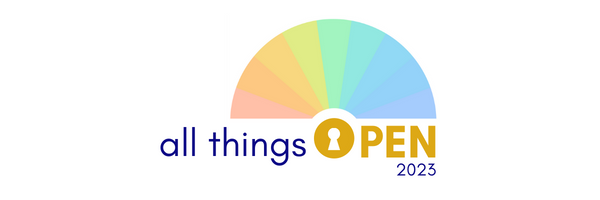
All Things Open 2023
Loading...
Presentation Type
Presentation
Location
Zoom
Start Date
7-4-2023 1:00 PM
End Date
7-4-2023 1:45 PM
Description
Open Science has emerged recently in the United States as a guiding force to make research more open, accessible, reproducible, and reusable. The Open Science & Data Collaborations Program (OSDC) was created at the Carnegie Mellon University Libraries in 2018 to help researchers navigate and integrate open practices. The OSDC program connects students and faculty with library services, training, and tools needed to make their research open and meet policy requirements. In 2021, the OSDC developed metrics to measure the program’s impact. Presently, we are developing a needs assessment to understand open research practices and perspectives across our community. This lightning talk discusses the development of the needs assessment and how we plan to use results to improve our services and ensure we are serving all of CMU’s diverse research communities.
Presentation Slides
The Creation and Evolution of a Dedicated Open Science Program
Zoom
Open Science has emerged recently in the United States as a guiding force to make research more open, accessible, reproducible, and reusable. The Open Science & Data Collaborations Program (OSDC) was created at the Carnegie Mellon University Libraries in 2018 to help researchers navigate and integrate open practices. The OSDC program connects students and faculty with library services, training, and tools needed to make their research open and meet policy requirements. In 2021, the OSDC developed metrics to measure the program’s impact. Presently, we are developing a needs assessment to understand open research practices and perspectives across our community. This lightning talk discusses the development of the needs assessment and how we plan to use results to improve our services and ensure we are serving all of CMU’s diverse research communities.

